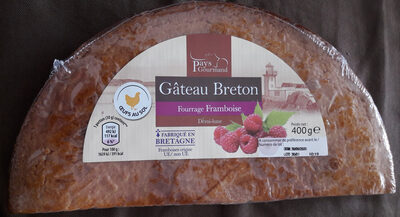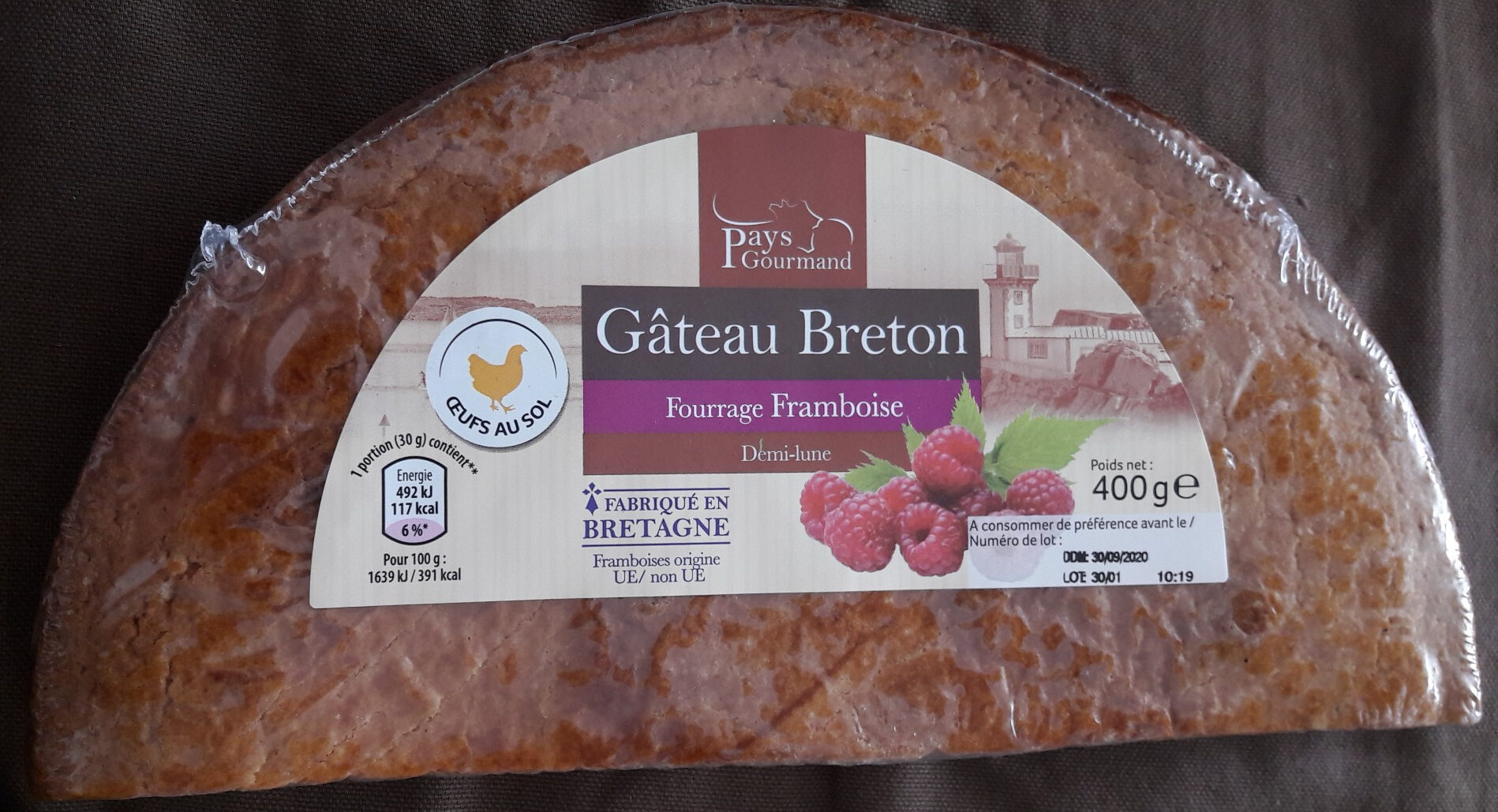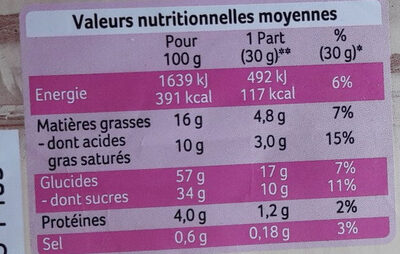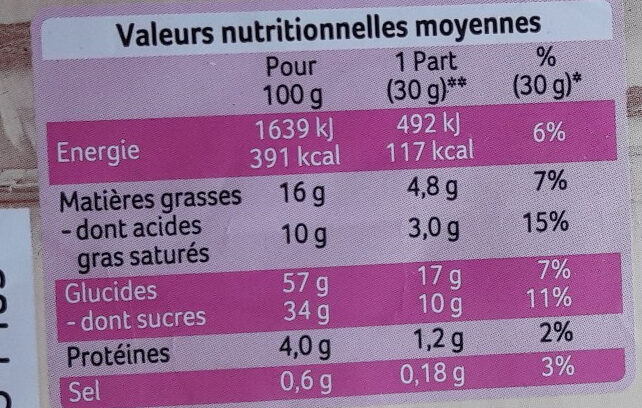Gateau Breton Fourrage Framboise - pays gourmand - 400 g
Ambiguous barcode: This product has a Restricted Circulation Number barcode for products within a company. This means that different producers and stores can use the same barcode for different products.
×
This product page is not complete. You can help to complete it by editing it and adding more data from the photos we have, or by taking more photos using the app for Android or iPhone/iPad. Thank you!
×
Barcode: 26037103
Common name: Gâteau breton avec fourrage (25%) à la framboise
Quantity: 400 g
Packaging: Plastic, fr:Film en plastique
Brands: pays gourmand
Categories: Snacks, Sweet snacks, Biscuits and cakes, Cakes, Breton cakes
Labels, certifications, awards: Made in France
Origin of ingredients: European Union and Non European Union
Manufacturing or processing places: saint martin des champs
Stores: Aldi
Countries where sold: France
Matching with your preferences
Environment
Packaging
Transportation
Report a problem
Data sources
Product added on by kiliweb
Last edit of product page on by noob10.
Product page also edited by beniben, off.3a50195a3d821c92b73d43ddca3d7037, openfoodfacts-contributors, packbot, quentinbrd, roboto-app, yuka.WHFNRE52bzY5dlZVaThFYjBoTDh3NHNwNVpMMVpHK3pDUFllSVE9PQ.










